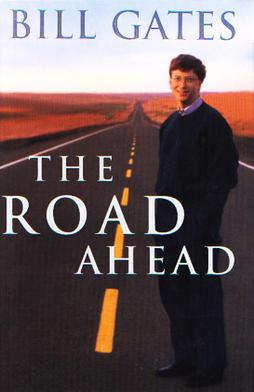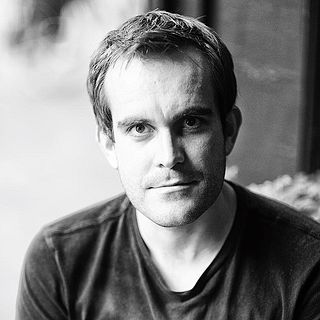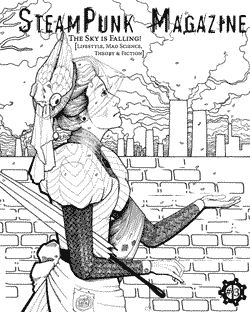A nerd is a person seen as overly intellectual, obsessive, introverted or lacking social skills. Such a person may spend inordinate amounts of time on unpopular, little known, or non-mainstream activities, which are generally either highly technical, abstract, or relating to niche topics such as science fiction or fantasy, to the exclusion of more mainstream activities. Additionally, many so-called nerds are described as being shy, quirky, pedantic, and unattractive.

Newsweek is an American weekly news magazine. It is co-owned by Dev Pragad, its president and CEO, and Johnathan Davis, who has no operational role; each owning 50%. Founded as a weekly print magazine in 1933, it was widely distributed during the 20th century, and had many notable editors-in-chief. The magazine was acquired by The Washington Post Company in 1961, and remained under its ownership until 2010.

Cory Efram Doctorow is a Canadian-British blogger, journalist, and science fiction author who served as co-editor of the blog Boing Boing. He is an activist in favour of liberalising copyright laws and a proponent of the Creative Commons organization, using some of their licences for his books. Some common themes of his work include digital rights management, file sharing, and post-scarcity economics.

The Road Ahead is a book written by Bill Gates, co-founder and previous chairman and CEO of Microsoft software company, together with Microsoft executive Nathan Myhrvold and former Microsoft vice president and Pulitzer Prize winner Peter Rinearson. Published in November 1995, then substantially revised about a year later, The Road Ahead summarized the implications of the personal computing revolution and described a future profoundly changed by the arrival of a global information superhighway.
Clifford Paul "Cliff" Stoll is an American astronomer, author and teacher.

"Eat It" is a 1984 song by American comedy music artist "Weird Al" Yankovic. It is a parody of Michael Jackson's 1983 single "Beat It", with the contents changed to be about an exasperated parent attempting to get their picky child to eat anything at all, much less to eat properly. The track was both a commercial and critical success, earning Yankovic a Grammy Award. It peaked at number twelve in the United States, making it his first top 40 hit in that country, and reached number one in Australia.

Xeni Jardin is an American weblogger, digital media commentator, and tech culture journalist. She is known as a former co-editor of the collaborative weblog Boing Boing, a former contributor to Wired Magazine and Wired News, and a former correspondent for the National Public Radio show Day to Day. She has also worked as a guest technology news commentator for television networks such as PBS NewsHour, CNN, Fox News, MSNBC and ABC.

Mark Frauenfelder is an American blogger, illustrator, and journalist. He was editor-in-chief of the magazine MAKE and is co-owner of the collaborative weblog Boing Boing. Along with his wife, Carla Sinclair, he founded the Boing Boing print zine in 1988, where he acted as co-editor until the print version folded in 1997. There his work was discovered by Billy Idol, who consulted Frauenfelder for his Cyberpunk album. While designing Boing Boing and co-editing it with Sinclair, Frauenfelder became an editor at Wired from 1993–1998 and the "Living Online" columnist for Playboy magazine from 1998 to 2002. He is the co-editor of The Happy Mutant Handbook, and was the author and illustrator of Mad Professor. He is the author and illustrator of World's Worst and The Computer: An Illustrated History. He is the author of Rule the Web: How to Do Anything and Everything on the Internet—Better, Faster, Easier, and Made by Hand. He was interviewed on the Colbert Report in March 2007 and in June 2010.

Ian McDonald is a British science fiction novelist, living in Belfast. His themes include nanotechnology, postcyberpunk settings, and the impact of rapid social and technological change on non-Western societies.

Steven Berlin Johnson is an American popular science author and media theorist.
Steven Poole is a British author, journalist, and video game theorist. He particularly concerns himself with the abuse of language and has written two books on the subject: Unspeak (2006) and Who Touched Base in My Thought Shower? (2013).
Markus Hess is a German hacker who was active in the 1980s. Alongside Dirk Brzezinski and Peter Carl, Hess hacked into networks of military and industrial computers based in the United States, Europe and East Asia, and sold the information to the Soviet KGB for US$54,000. During his time working for the KGB, Hess is estimated to have broken into 400 U.S. military computers. The hacked material included "sensitive semiconductor, satellite, space, and aircraft technologies".

Google Books is a service from Google that searches the full text of books and magazines that Google has scanned, converted to text using optical character recognition (OCR), and stored in its digital database. Books are provided either by publishers and authors through the Google Books Partner Program, or by Google's library partners through the Library Project. Additionally, Google has partnered with a number of magazine publishers to digitize their archives.

Paul Bradley Carr is a British writer, journalist and commentator, based in San Francisco. He has also—as he wrote on his official website—"edited various publications and founded numerous businesses with varying degrees of abysmal failure."

Clifford Meth is an American writer, editor, and publisher best known for his dark fiction, as well as his publishing imprint Aardwolf Publishing. He has said that his work is often "self-consciously Jewish."
Regis McKenna was a marketer in Silicon Valley and introduced some techniques today commonplace among advertisers. He and his firm helped market the first microprocessor, Apple's first personal computer, the first recombinant DNA genetically engineered product, and the first retail computer store.

SteamPunk Magazine was an online and print semi-annual magazine devoted to the steampunk subculture which existed between 2007 and 2016. It was published under a Creative Commons license, and was free for download. In March 2008, SteamPunk Magazine began offering free subscriptions to incarcerated Americans, as a "celebration" of 1% of the US population being eligible.
The Internet Hunt was a monthly online game and search training tool, conceived and conducted by Rick Gates, as Director of Library Automation UC Santa Barbara, which began 31 August 1992, before the World Wide Web.

Michael A. Rogers is an author, futurist, and columnist for MSNBC.com. He has also worked with companies including FedEx, Boeing and NBC Universal to Prudential, Dow Corning, American Express and Genentech.
The Jargon File is a glossary and usage dictionary of slang used by computer programmers. The original Jargon File was a collection of terms from technical cultures such as the MIT AI Lab, the Stanford AI Lab (SAIL) and others of the old ARPANET AI/LISP/PDP-10 communities, including Bolt, Beranek and Newman, Carnegie Mellon University, and Worcester Polytechnic Institute. It was published in paperback form in 1983 as The Hacker's Dictionary, revised in 1991 as The New Hacker's Dictionary.












